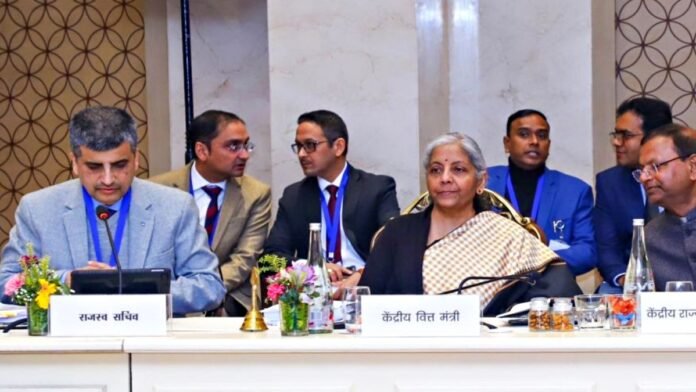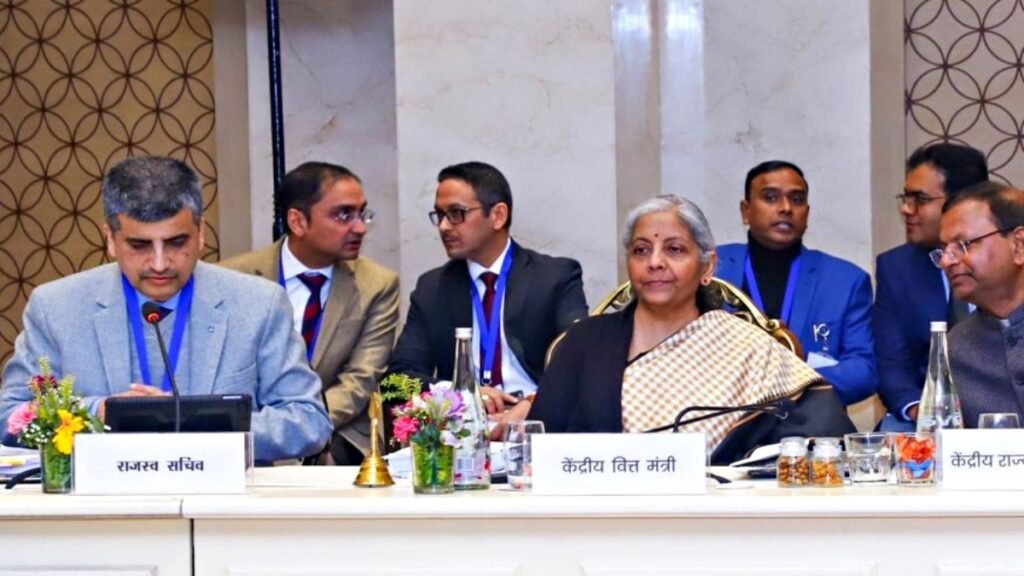
Key Highlights
- GST Exemption for Farmers: No GST will be levied on black pepper and raisins sold by farmers.
- Reduced GST on Fortified Rice Kernels: GST on fortified rice kernels has been cut to 5%, benefiting food assistance programs for the underprivileged.
- Revised GST for AAC Blocks: AAC blocks with over 50% fly ash to attract 12% GST.
- Concessional Rate for Inputs to Aid Weaker Sections: Extension of the 5% GST on inputs for food products distributed free to underprivileged communities.
- No GST on Bank and NBFC Fines: Fines collected from borrowers are exempted from GST.
- Transaction Exemption for Payment Aggregators: Exemption from GST on transactions below ₹2,000, excluding payment gateways.
- Pending Discussions: No resolution on GST for food delivery apps or floor space index charges.
New Delhi: The 55th GST Council meeting, chaired by Finance Minister Nirmala Sitharaman in Jaisalmer on Saturday, introduced significant reforms aimed at reducing financial burdens on farmers, promoting food security, and streamlining tax policies. The meeting brought relief to several sectors, while a few critical discussions remain pending.
GST Exemption for Farmers
In a move to support agricultural activities, the Council announced that no GST would be levied on black pepper and raisins sold directly by farmers. This decision is expected to boost agricultural trade and bring respite to small-scale farmers.
GST Rate on Fortified Rice Kernels Slashed
To aid weaker sections of society, the Council reduced GST on fortified rice kernels to 5%. These fortified kernels are a crucial component of government programs aimed at combating malnutrition and ensuring food security.
Changes in GST for AAC Blocks
The Council approved a 12% GST rate for autoclaved aerated concrete (AAC) blocks containing over 50% fly ash. This decision aligns with the government’s push for eco-friendly construction materials.
Extension of Concessional GST for Food Inputs
A 5% GST rate on inputs for food products distributed to the underprivileged has been extended. This ensures that charitable and government food distribution schemes can operate at a lower cost.
Relief for Banking and Finance
Fines collected by banks and non-banking financial companies (NBFCs) from borrowers will no longer attract GST. This provides much-needed clarity and reduces compliance burdens for financial institutions.
Support for Digital Payments
The Council announced GST exemptions on transactions below ₹2,000 for payment aggregators, but this does not extend to payment gateways. The decision encourages digital payments and reduces transaction costs for small-scale digital transactions.

Pending Issues
The Council also discussed GST applicability on food delivery apps and floor space index charges but has deferred decisions on these matters for further review.
A Move Towards Inclusivity and Economic Ease
Finance Minister Sitharaman lauded the Council’s efforts in addressing issues impacting various sectors, particularly agriculture and food security. With these changes, the government aims to simplify taxation and bring tangible benefits to vulnerable communities.
The next GST Council meeting is expected to address unresolved issues and continue refining tax policies to foster economic growth and inclusivity.







































